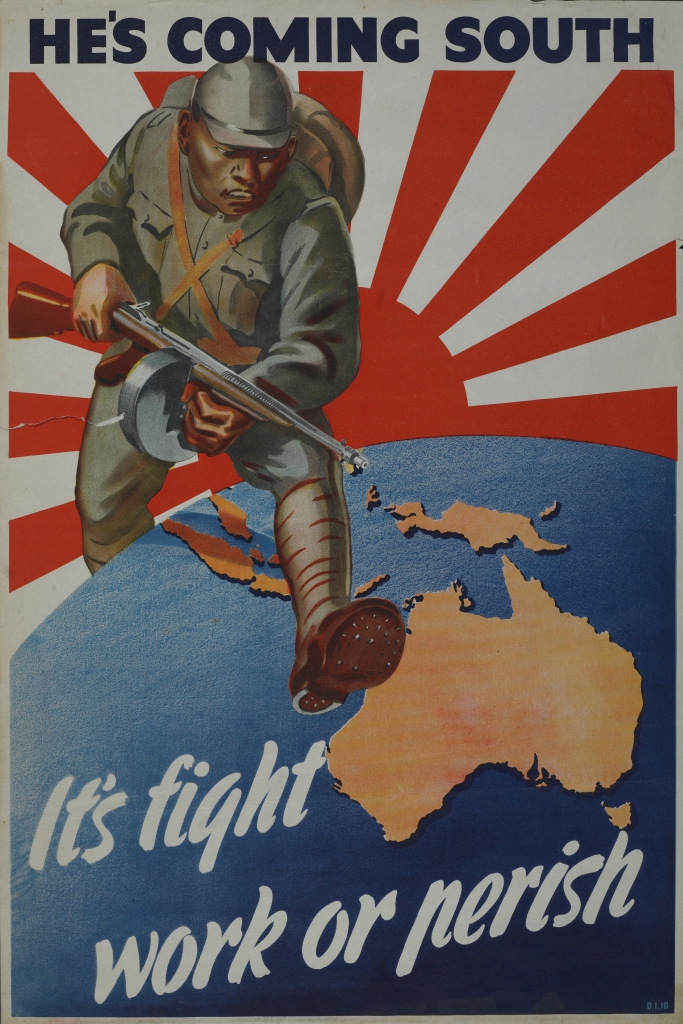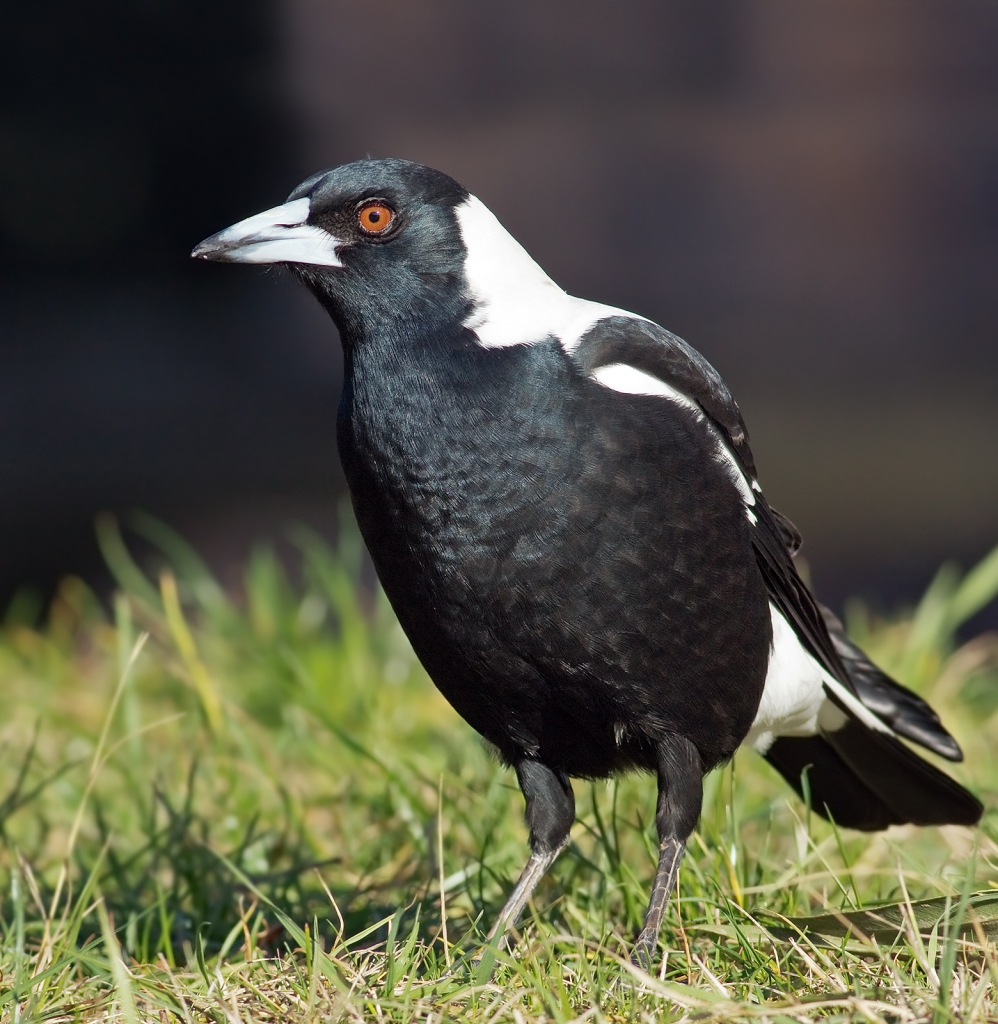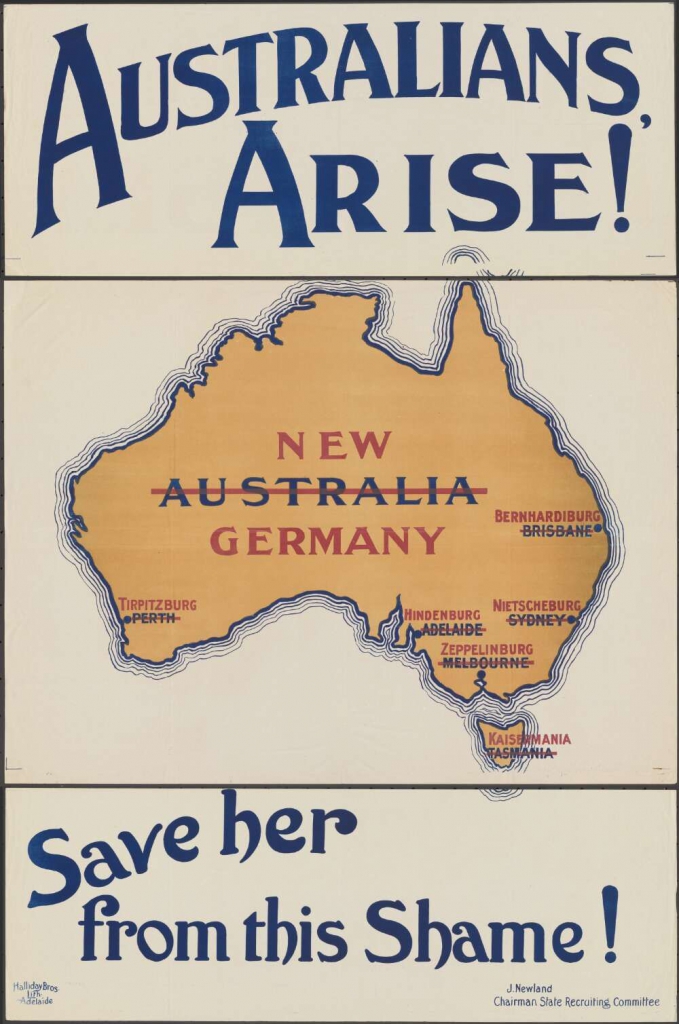
Australian World War I Propaganda Poster: The Crusaders

Just another nerd.

World War II Propaganda poster published in Australia in 1942. (Source)

Magpies are ubiquitous in urban areas all over Australia, and have become accustomed to people. A small percentage of birds become highly aggressive during breeding season from late August to early – mid October, and will swoop and sometimes attack passersby. Attacks begin as the eggs hatch, increase in frequency and severity as the chicks grow, and tail off as the chicks leave the nest.
The percentage has been difficult to estimate but is significantly less than 9%. Almost all attacking birds (around 99%) are male, and they are generally known to attack pedestrians at around 50 m (160 ft) from their nest, and cyclists at around 100 m (330 ft). There appears to be some specificity in choice of attack targets, with the majority of individuals specializing on either pedestrians or cyclists. Smaller – especially younger – people, lone people, and people travelling quickly (i.e., runners and cyclists) appear to be targeted most often by swooping magpies. Anecdotal evidence suggests that if a magpie sees a human trying to rescue a chick that has fallen from its nest, the bird will view this help as predation, and will become more aggressive to humans from then on.
Magpies may engage in an escalating series of behaviours to drive off intruders. Least threatening are alarm calls and distant swoops, where birds fly within several metres from behind and perch nearby. Next in intensity are close swoops, where a magpie will swoop in from behind or the side and audibly “snap” their beaks or even peck or bite at the face, neck, ears or eyes. More rarely, a bird may dive-bomb and strike the intruder’s (usually a cyclist’s) head with its chest. A magpie may rarely attack by landing on the ground in front of a person and lurching up and landing on the victim’s chest and pecking at the face and eyes.


Apparently it can in Australia,
A Queensland court has accepted a dead man’s unsent, draft text message leaving his possessions to his brother and nephew instead of his wife and son, as an official will.
. . .
The unsent message detailed how to access the man’s bank account details and where he wanted his ashes to be buried.
“You and [nephew] keep all that I have house and superannuation, put my ashes in the back garden … [wife] will take her stuff only she’s ok gone back to her ex AGAIN I’m beaten. A bit of cash behind TV and a bit in the bank Cash card pin … My will”
I’d never heard of them before, but apparently there was a popular band in Australia in the 1980s called Hunters & Collectors. According to their Wikipedia page, they formed in 1981 and then broke up in 1998, with some sort of reformation in 2013.
So, of course, this band is a hot button item for People for the Ethical Treatment of Animals. In a March 2, 2017 press release, PETA asked the group to change its name to something more animal friendly.
Dear Mark, John, Doug, Jack, Rob, Barry, Jeremy, and Michael,
I hope this letter finds you well. On the eve of the duck-hunting season, we at PETA Australia have a request that may help save lives: Would you consider changing the name of your band to discourage people from hunting animals?
We feel sure that it was never your intention to promote the killing of intelligent, sensitive, and defenceless animals, but your name may nevertheless make hunting seem appealing to your fans.
. . .
As your Adelaide reunion show is coming up, now is the perfect time to for a band namelift. Might you consider “Hunters & Collectors of Antiques”, “Hunters & Collectors of Vinyl Records”, or even “Hunters & Collectors of Beer Cans” as possible replacements? You could even enlist the help of your fans to crowdsource the holy grail of names on social media.
Do you see what we see? By agreeing to change your name, you would help raise awareness of the cruelty inherent in hunting waterbirds and give ducks a fighting chance.
Warm regards,
Ashley Fruno
Associate Director of Campaigns
PETA Australia